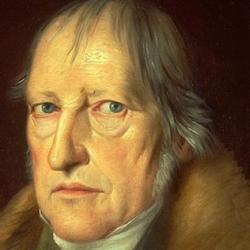Ron Highland argues (The Faithful Creator) that discussions of providence and freedom often get off on the wrong foot because of a faulty definition of freedom. “Many recent discussions of freedom give the impression that the Bible speaks directly and often about a freedom of the will given with our creation and shared by every human being” (277).
That is not so. For the Bible, he argues, freedom and salvation are closely linked, so that “freedom in the fullest sense of the word [is] a supernatural transformation inwardly and outwardly so that every limitation that blocks human beings from becoming and living as children of God is removed. It involves union with Christ, sanctification and resurrection to eternal life by the life-giving Spirit. For Christian theology at least, the word freedom should be reserved for conditions that in some way are analogous to the eschatological freedom” (279).
Needless to say, that is not what most philosophers mean when they talk about “freedom of the will.” They often mean, instead, autonomy or libertarian freedom. A strong form of libertarian freedom doesn’t count as freedom in the biblical sense. Highfield acknowledges that Thomas agrees that “one is free only if at the point of decision one possesses the power to choose any of the alternatives being contemplated or none. But Thomas doesn’t affirm libertarian freedom because for him “the capacity for alternative choice is a power of a nature determined to seek complete happiness in whatever alternative it chooses” and because for Thomas “not even free will can escape God’s control” (286).
Advocates of self-determining freedom end up with pure will. The choice cannot be pre-determined by a nature oriented to rational ends; it must be free to act irrationally. And the choice cannot be controlled in any respect by God: “For radical libertarians, the final indifference must remain even if your reason assures you that a leads to infinite happiness and b to leads to eternal misery. The message of reason can be a very persuasive factor, but it cannot be determinative. For then the will would in principle be locked in one mode; that is, it would have to will good in truth or total happiness.” It is “the will’s nature or end . . . to affirm or deny without any predetermined direction or set limitations. It is pure will” (286).
Pure will doesn’t even allow for genuine responsibility: “since as pure will we can acknowledge no inner law or given direction within ourselves, we could not be held responsible for doing what we knew we should not do. Pure will possesses no inner guide to which it is answerable by nature and no given structure that some acts could contradict. Pure will knows no law but what it gives itself in the moment” (287).
This is a problem because libertarians propose this form of will as a way to secure human responsibility. And it’s a problem because we could hardly be further from the Pauline freedom for which Christ set us free.











